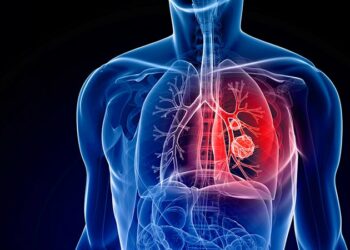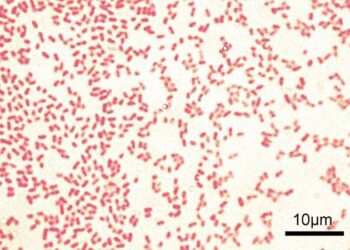- A study finds that higher rates of colorectal cancer may be linked to obesity and alcohol consumption in the UK.
- According to the
National Cancer Institute , alcohol consumption could potentially increase the risk of colorectal cancer by as much as 50%. - Chronic inflammation associated with obesity, as well as certain hormones can create conditions that increase the risk of different cancers.
The authors of a new study suggest that higher rates of death from colorectal cancer in younger adults may be linked to obesity and alcohol consumption.
The study, published this week in the journal Annals of Oncology, notes that while death rates from this type of cancer are down overall, it is the first time that they have risen in young adults.
The authors of the study write that the largest increase in colorectal cancer death rates among young adults will be in the UK: up 26% in men and nearly 39% in women in 2024, compared with the same populations in 2018.
Rates are also expected to rise in Italy (up 1.5% in men and 2.6% in women), among Spanish and Polish men (up 5.5% and 5.9% respectively), and among German women (up 7.2%).
“Key factors that contribute to the rise in bowel cancer rates among young people include overweight, obesity and related health conditions, such as high blood sugar levels and diabetes,” Dr. Carlo La Vecchia, a study author and professor of medical statistics and epidemiology at the University of Milan told Healthline. “Additional reasons are increases in heavier alcohol drinking over time in central and northern Europe and the UK, and reductions in physical activity. Alcohol consumption has been linked to early onset bowel cancer, and countries where there has been a reduction in alcohol consumption, such as France and Italy, have not experienced such marked rises in death rates from this cancer.”
La Vecchia noted that people diagnosed with early-onset bowel cancer may face a more aggressive disease that has lower survival rates.
According to the
Dr. Anton Bilchik, MD, PhD, surgical oncologist, chief of medicine and Director of the Gastrointestinal and Hepatobiliary Program at Saint John’s Cancer Institute in Santa Monica, CA, told Healthline that the study’s findings mirror what is happening in the U.S.
Bilchik was not involved in the study.
“We are seeing the same trend in the U.S.,” Bilchik said. “Alcohol consumption appears like the UK and some northern countries in Europe. Interestingly, this study shows that in France and Italy, where there is a decline in alcohol consumption, there is less of an increase in colon cancer in young adults.”
Dr. Babak Firoozi, board certified gastroenterologist at MemorialCare Orange Coast Medical Center in Fountain Valley, CA, told Healthline that this form of cancer is the deadliest for young American men.
Firoozi was not involved in the study.
“Per the American Cancer Society, colon cancer is now the leading cause of cancer death in men under age 50, and the second leading cause of cancer death in women under age 50 behind breast cancer,” Firoozi said. “Many of the fastest rising rates of cancer are linked to obesity and alcohol consumption, including esophageal cancer, pancreatic cancer, liver cancer, and colorectal cancer.”
According to the National Cancer Institute,
Firoozi noted that aside from the pandemic years, in which alcohol consumption rose globally, the rate of alcohol consumption in both the U.S. and Europe has decreased. However, obesity remains a significant health problem in the U.S.
“The rates of obesity have reached epidemic proportions in the U.S.,” Firoozi said. “There has been an alarming increase in the prevalence of obese Americans in the last 40 years. There are some states, mostly in the south, where more than 30% of the population is obese.”
Bilchik said that these decreases in alcohol use suggest how much obesity and diet and exercise habits are a factor in colorectal cancer, which is decreasing in older adults. This is likely because of better screening techniques and the removal of precancerous polyps.
“Gallup polls demonstrate that alcohol rates are decreasing among younger adults while remaining steady or increasing in older adults. This supports the fact that other factors such as obesity, lifestyle and the environment are all related to the increased incidence of colon cancer in young adults,” Bilchik said. “Obesity rates are increasing exponentially among young adults, particularly in underserved and rural communities. There are many reasons for this — genetics, physical inactivity, an excess of processed food and the expense and access to healthy fruit and vegetables.”
Colorectal cancers are on the rise in young people in the European Union and United Kingdom, a trend that is also occurring in the U.S.
Heavy drinking is a likely culprit, as are the risk factors associated with obesity.
Changes in alcohol consumption, diet and exercise, as well as screening for colorectal cancers for people under 45, are steps that can be taken to reduce risk or catch developing cancers early.
Source link : https://www.healthline.com/health-news/obesity-and-alcohol-may-be-behind-rise-in-colorectal-cancer-in-younger-adults
Author :
Publish date : 2024-01-31 00:00:34
Copyright for syndicated content belongs to the linked Source.









